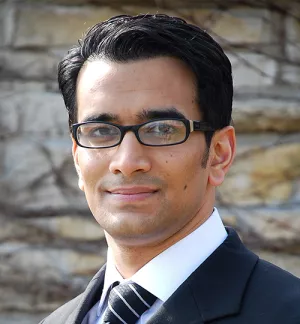Reduce the Motivation to Radicalize
We Often think of terrorist groups as distinct and independent, like companies. When attacks happen, policymakers and pundits ask questions such as: Which group did it? Where were they based? Who are the ringleaders? Will they strike again?
That is old thinking. Intelligence services in the U.S., United Kingdom, Holland, Denmark and Sweden agree that the main threat now comes mainly from freelance cells. Islamist terrorism has changed and the atrocities in Mumbai show that failure to grasp that change is dangerous.
We must stop thinking of the perpetrators as unified companies and start thinking of them as ad hoc groups of freelancers from a worldwide pool of Islamic radicals. The evidence is overwhelming and we ignore it at our peril.
Take last week's attacks. Many analysts believe the group that claimed the attack — Deccan Mujahideen — is a loose movement of Indian Muslims. The attack was clearly well-planned, but the fact that the group's name has not been heard before implies that it may be a front for the individuals who conducted it. Other elements suggest a combination of local grievances and Al Qaeda techniques. The group's name is explicitly Indian — it refers to a central Indian plateau. Its tactics — including guerrilla-style street battles, the lack of suicide bombing, the storming of buildings and hostage-taking — differentiate it from attacks explicitly linked to Al Qaeda. But other elements which have not been seen in previous Indian attacks, such as the coordinated timing, imply that Al Qaeda provided advice.
This supports the growing worldwide picture that Islamist terrorism has shifted from a company model to a freelance one.
The evidence is overwhelming. "Self-starter" cells initiated the attacks in London in 2005, Madrid in 2004 and Casablanca in 2003. Al Qaeda has stated that it now conducts 50 percent of its war through the media.
The implications of this shift to freelance terrorism are profound. Freelance radicals can move across borders easily, disband and regroup at will and can be coordinated remotely. Inspiration and know-how can be disseminated, and plans formed, online between radicals who need not even have met. But the crucial difference is that any given terrorist can be replaced with another. That means any terrorist group cannot be conclusively defeated. This fact calls for a change in how Western governments address terror.
There is only one way to beat Islamist terror in the long-term and that is to reduce the motivation for young people to radicalize.
Governments must redefine success against terrorism. One way to do this is to undermine the intellectual conditions in which radicalization takes root. We must discredit interpretations of Islam that permit the murder of innocents. Western governments should draw media attention to authoritative Muslim religious and legal figures abroad who renounce violent jihad. This kind of tactic has been used successfully by governments in Egypt and Saudi Arabia for many years. It is cheap or free.
An example is instructive. Sayyid Imam al-Sharif is a respected jihadist thinker whose previous works influenced leading figures in Al Qaeda. In 2007, he published a book strongly renouncing violent jihad. In an interview with the Egyptian press, he argued that his book posed an acute problem for Al Qaeda because it had no one who is qualified from a Sharia (Islamic law) perspective to respond. The story was front-page news in many Islamic countries because of Sharif's authority with jihadis. Many Muslim scholars sided with Sharif, and Al Qaeda was stung into writing a 200-page response. But the news was barely mentioned in the European and American media.
Western governments must learn from this: They lack the Islamic credibility to dissuade radicals directly, but they can draw attention to credible authorities who can do it for them.
We must start thinking long-term. Terrorism is freelance and it relies on a pool of young radicals. The key to beating it is to minimize the motivation of young Muslims to radicalize.
Professor Azeem Ibrahim is a research fellow at the International Security Program, Kennedy School of Government at Harvard University and a member of the Dean's International Council at the Harris School of Public Policy at University of Chicago.
Ibrahim, Azeem. “Islamist Terrorism Goes Freelance.” Chicago Tribune, December 3, 2008




